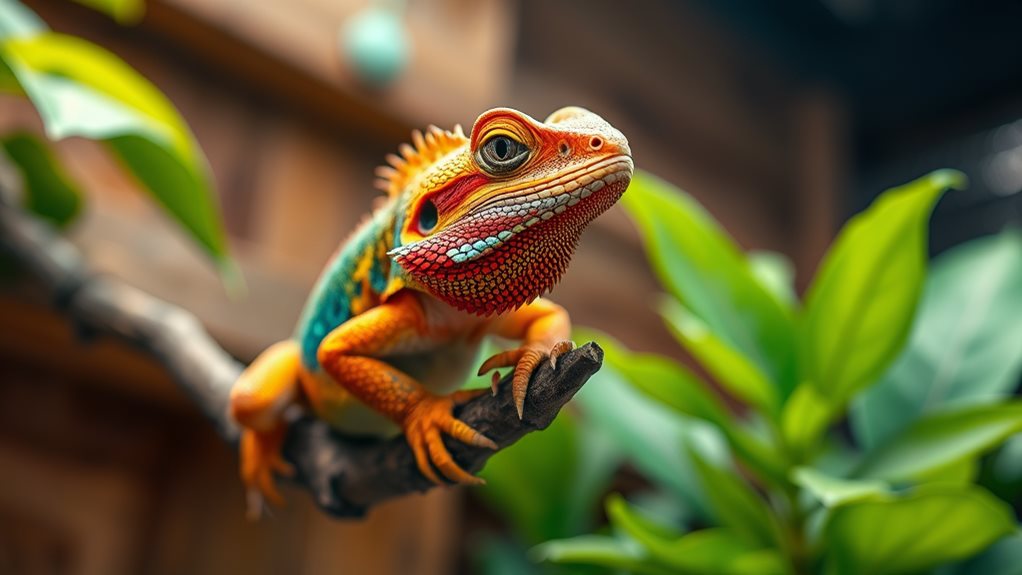You’re considering entering the world of exotic pets, but it’s vital you understand the unique challenges and responsibilities involved. As an exotic pet owner, you’ll need to provide specialized care, including custom enclosures and diets tailored to your pet’s specific needs. You’ll also need to navigate complex laws and regulations. With many exotic species living for decades, it’s essential you’re prepared for the long-term commitment required to keep them healthy and thriving. While exploring the world of unique and luxurious pet experiences, why not indulge yourself in other premium opportunities? Discover exclusive insights into luxury hospitality and take advantage of casinos con promociones del 100% en primer depósito for a first-class entertainment experience.

Challenges and Risks of Exotic Pet Ownership
While owning an exotic pet can be a unique and exciting experience, it also comes with significant challenges and risks that you should carefully evaluate before deciding to bring one home.
As an exotic pet owner, you’ll face health risks associated with handling and caring for an animal that may carry diseases or parasites transmissible to humans.
You’ll also need to reflect on the ethical concerns surrounding the exotic pet trade, including the potential for animal cruelty and habitat disruption.
Additionally, you’ll be responsible for ensuring compliance with local laws and regulations regarding exotic pet ownership.
It’s important to weigh these challenges and risks carefully, considering both the welfare of the animal and your own well-being, before making a decision.
Understanding the Needs of Exotic Animals
As you consider owning an exotic pet, it’s important to understand the unique needs of these animals to guarantee their health and well-being.
One key aspect is dietary requirements. Exotic animals often have highly specialized diets that include foods not typically found in local pet stores. Researching the specific dietary needs of the species you’re interested in is essential.
Social interactions are another significant consideration. Many exotic animals, such as primates and birds, are highly social creatures that require regular interaction and stimulation to prevent stress and behavioral problems.
Understanding these needs will help you determine if you can provide the necessary environment and care for your exotic pet, ensuring a happy and healthy relationship for both you and the animal.
Specialized Care and Equipment for Exotic Pets
Providing the right environment for your exotic pet goes beyond understanding its dietary and social needs.
You’ll need to create specialized habitats tailored to your pet’s unique characteristics. This may involve replicating its natural environment, including factors like humidity, temperature, and lighting.
You’ll also need to take into account the equipment required to maintain this environment, such as heat lamps, misting systems, or specialized filtration.
Additionally, meeting your pet’s dietary requirements may necessitate specialized feeding equipment, like syringes or feeding tubes.
Research and invest in high-quality equipment to guarantee your pet’s health and well-being.
Regularly inspect and maintain this equipment to prevent malfunctions and keep your pet safe.
With the right equipment and environment, you can provide your exotic pet with a happy, healthy life.
Laws and Regulations Surrounding Exotic Pet Ownership
Before bringing an exotic pet into your home, it’s vital to familiarize yourself with the laws and regulations surrounding exotic pet ownership in your area. Import restrictions vary by country, state, and even municipality, so it’s important to research the specific laws governing the pet you’re interested in.
Some exotic pets may be prohibited or require special permits, and violating these regulations can result in severe legal consequences, including fines and even imprisonment.
Additionally, you’ll need to make sure that you’re complying with local zoning laws and health department regulations. By understanding the laws and regulations, you can avoid potential issues and guarantee that you’re providing a safe and suitable environment for your exotic pet.
This knowledge will also help you make an informed decision about pet ownership.
Long-Term Commitment to Exotic Pet Care
When contemplating an exotic pet, it’s crucial to think about the long-term implications of caring for an animal that may live for 20, 30, or even 50 years or more.
You’re making a significant commitment that requires a substantial financial investment and time dedication. Exotic pets need regular veterinary check-ups, specialized diets, and large enclosures that must be maintained and updated regularly.
You’ll also need to take into account the cost of replacing equipment, veterinary emergencies, and potential changes in your lifestyle.
Before bringing an exotic pet home, verify you’re prepared to provide a lifelong commitment to its care.
Research the animal’s specific needs and create a plan for providing the necessary care and resources over the long term.
This will help guarantee a healthy and happy relationship between you and your exotic pet.